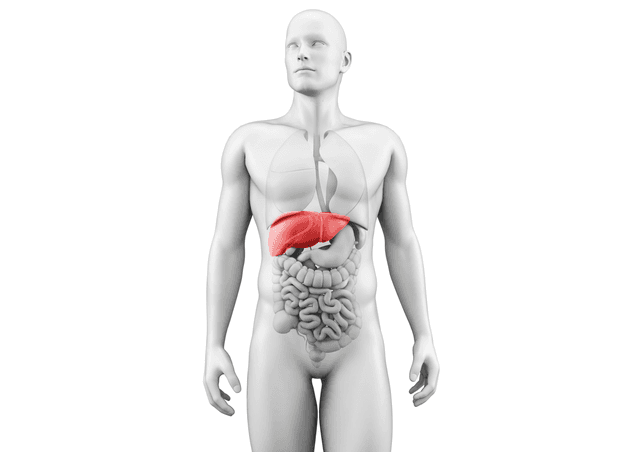
The Silent Decline: Why Men Are Losing Testosterone Faster Than Ever
There’s a quiet crisis playing out in men’s health and it has nothing to do with fitness trends or protein shakes. It’s testosterone. And it’s falling fast.
Studies show that men today have 20-30% lower testosterone levels than men of the same age two decades ago. That’s not genetics, that’s lifestyle. Every year, the numbers dip a little more, and the symptoms get brushed off as fatigue, belly fat, low drive, irritability and poor focus. But behind them lies a deeper issue: the body’s chemistry of vitality is losing its rhythm.
What testosterone really does
Testosterone isn’t just about libido or muscle. It’s what gives men direction, a sense of purpose, confidence and stamina. When it’s balanced, the body burns fat efficiently, builds muscle, and keeps the mind sharp. When it dips, everything slows.. energy, mood, metabolism, motivation and more..
The downward slide
So what’s happening? Chronic stress keeps cortisol high, quietly blocking testosterone production. Poor sleep flattens the body’s natural hormonal rhythm. Sedentary work tells the brain the body doesn’t need to stay anabolic. Diets overloaded with carbs, refined oils, and processed foods keep insulin high and metabolism sluggish.
Add to that widespread Vitamin D deficiency, especially in South Asian men, where darker skin and long indoor hours block sunlight conversion and you have the perfect biological storm. The modern man’s system is running on caffeine, cortisol, and convenience, not rest and repair.
The testosterone-diabetes loop
Low testosterone and poor metabolic health feed off each other in a silent loop. High insulin promotes belly fat. Fat tissue increases an enzyme called aromatase, which converts testosterone into estrogen. That lowers testosterone further, reducing muscle and worsening insulin resistance.
It’s a self-perpetuating cycle that looks like this:
High insulin → more fat → more estrogen conversion → lower testosterone → less muscle → poorer insulin control → higher insulin again.
You can’t supplement your way out of this loop. The only real fix is realigning sleep, strength and food.
Why this matters
Low testosterone isn’t just a midlife issue. Men as young as 28 are now showing early symptoms of low energy, mood swings, poor focus and weaker workouts. This isn’t about ageing, it’s our messed-up lifestyle rewriting biology.
Unchecked, this hormonal drift doesn’t just affect fitness; it impacts metabolic health, fertility, mental clarity and long-term cardiovascular risk. And this hormonal chaos doesn’t stop at metabolism; it quietly spills into sexual health.
Low testosterone affects the other kind of performance, too. When levels fall, so does nitric oxide, the compound that allows blood vessels to relax and fill. The result? Weaker erections and lower libido.
One of the earliest signs is the absence of regular morning erections. It’s not just fatigue; it’s physiology trying to say something’s off. Erectile dysfunction is often the downstream symptom of the same metabolic storm, high insulin, excess fat, poor sleep, and low testosterone- all colliding in one place. Address the root and the rest often follows.
And before you rush for a testosterone test, here’s what we tend to overlook- just getting the total testosterone tested, but not the part that actually does the work. It’s the free testosterone that matters, not just the total.
Typical reference ranges:
Total Testosterone: 300-1,000 ng/dL
Free Testosterone: 5-15 ng/dL
Because of this wide range, you can be perfectly ‘in range’ on paper and still feel off in reality, so listen to your body.
How to begin turning it around
Start by lifting something heavy a few times a week. Resistance training remains the most reliable natural testosterone booster. Sleep before midnight, testosterone peaks during deep sleep and without rest and recovery, it never really happens. Get outside. Sunlight restores Vitamin D, which the testes use to make testosterone.
Eat smart fats and enough protein. Hormones are made from cholesterol, and cutting out all fats cuts off the raw material. And finally, reduce stress. Chronic cortisol steals the same building blocks that testosterone needs.
Let’s talk about the hype
Everywhere you look, there’s a “miracle testosterone booster” – Shilajit capsules, powders, tinctures, tonics or some exotic herb from the Himalayas promising “unlimited energy.” The market is flooded with fakes, fillers, and self-proclaimed experts selling shortcuts to discipline.
If there’s no underlying medical condition, low testosterone is almost always a lifestyle issue and the only real fix is to modify that lifestyle. No capsule, tonic, or Chamatkari Baba can reset what your sleep, food and movement have thrown off.
Testosterone decline is a sign that your metabolism, sleep and stress systems are out of sync. And like most modern problems, it starts quietly until it doesn’t.
The numbers are dropping fast. What’s really alarming is how quietly it’s happening.
- Lifestyle
- Nutrition
- Well-being

Invisible Emergencies
“Help. Help. Help. I am drowning.” “Maybe we can come back tomorrow to rescue this poor lad… I’m sure they can hang in a little longer…” said no one ever. Because physical injury is visible. The need for repair seems obvious. It’s instinctual to identify a human in crisis — an accident, a burn, a […]

Liver on the Rocks: Alcohol, Sugar & the Fatty Liver Nobody Talks About
When a friend told me his doctor advised him to “quit drinking and eat as much fruit as you want” to fix his fatty liver, I blinked. No mention of weight loss. No talk about cutting sugar. Not a word about smoking. Just quit alcohol and pile on the fruit. That’s when I realised, there’s […]

 Workplace Well-being
Workplace Well-being Reinforced Learning
Reinforced Learning Collaboration
Collaboration